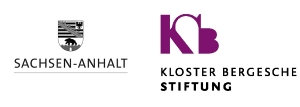Exhibition
outrageously rebellious
Sanja Iveković Ulrike Rosenbach Gabriele Stötzer
14.04.2024 -
30.06.2024
Sanja Iveković (born 1949 in Zagreb), Ulrike Rosenbach (born 1943 in Bad Salzdetfurth) and Gabriele Stötzer (born 1953 in Emleben) have taken radical artistic positions since the 1970s. Independently of each other, in the very different political contexts of their countries of origin, they developed a visual language that criticized common gender roles and the associated cultural norms.



The focus of their work is always the woman: for Rosenbach and Stötzer, the female body functions as a means of expression. They use it as a canvas or to break out of their boundaries through movement. Through her works, Iveković condemns the objectification of women's bodies and the associated projection surface for gender attributions.
The artists use a wide variety of media such as performance, photography, textiles, writing, painting and film to denounce gender assignments and counteract common images with their owns: sometimes loudly in large-scale actions, sometimes quietly in intimate moments, but always with a clear message.
Based on their own biographies, they create works in which they address the relationship between history and the present against the background of their female identity. To do this, they sometimes resort to rigorous artistic methods and demonstrate new possibilities of expression that have become groundbreaking for many areas of contemporary political art.
The exhibition presents photographs, video works, performances and installations from the beginning of the work of Ulrike Rosenbach, Gabriele Stötzer and Sanja Iveković as well as more recent works.
Sanja Iveković (born 1949 in Zagreb) combines artistic practice with social activism. She is considered one of Croatia's first feminist artists. In her early works, which emerged in the context of the Yugoslavian “New Art Practice” movement, she examined the relationship between mass media and ideology. Later projects explore the transformation of the Balkan countries from socialist to nationalist political systems. Iveković's works criticize the position of women in society and the portrayal of women in the media. She notes the relapse into a patriarchal system and deals with violence against women - a topic that has become increasingly visible in recent years.
Iveković often uses dazzling advertising images that show models and juxtaposes them with a social reality in the form of text, such as women affected by domestic violence.
Ulrike Rosenbach (born 1943 in Salzdetfurth near Hildesheim) is considered a pioneer of video art. She studied at the Düsseldorf Art Academy with Joseph Beuys and discovered the then new medium of video early on. In her processual and cross-media way of working, videos are created from performances and videos are turned into installations. This way, the artist creates entire work cycles.
In 1969, Rosenbach came into contact with American feminism and became part of this movement himself. Her themes are female identity and the role as a female artist, wife and mother. Ulrike Rosenbach's work puts her finger in the wound of patriarchal role clichés and counteracts them with other images of femininity.
Gabriele Stötzer (born 1953 in Emleben near Gotha) addresses the (female) individual in her works, which she places in opposition to a totalitarian society. After a year in prison for “state defamation” in the Hoheneck women’s prison in de GDR, she turned from writing to photography and film.
Among other things, she created numerous photographs, all of which are based on the naked female body, which she explores in performances and productions with other (non-)artists. With her work she rebels against the socialist, petty bourgeois and dogmatic taboos of her time. Only in art does she find the freedom for her commitment against incapacitation and regulation.
In the early 1980s, Gabriele Stötzer was a co-founder of an Erfurt group of artists and, in 1989, the citizens' initiative “Women for Change”. In the same year, she was a co-initiator of the occupation of the Stasi district administration in Erfurt.
Supported by:
